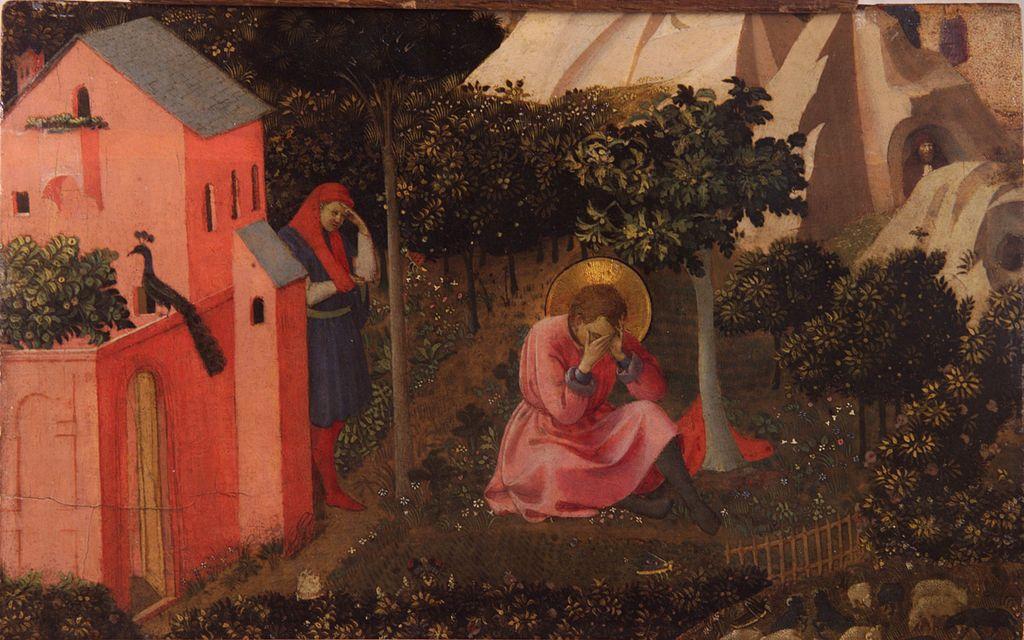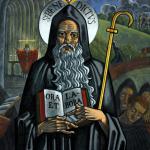I used to think church history was my grandma and her Scofield Bible. I used to think authentic Christian faith leaped from the moment of the last apostle’s death (John on the Isle of Patmos?) to around the time of Billy Graham. (What was happening in all the intervening years? Hmmm, maybe Christian faith went underground, secretly being passed from one small “real” Christian group to another, with occasional grand flare-ups of faith like the Reformation. Everyone else was were pagans or papists, and of course those were both perilous.) I used to think all our Christian rhythms and practices came straight from the Bible.
While many American Christians have deep roots in traditions other than English ones, we all have to admit that the British influence from our nation’s founding has been pervasive, and thus English spirituality has splashed on all of us in profound ways. My grandma might have been alarmed to think that perhaps Anglicanism, and before that English Catholicism, had ever trickled down to her own low church traditions or even into her prayers. Understanding our spiritual genealogies, however, no matter how mongrel-ish they might be, can serve us well in understanding the invisible “spiritual furniture” in our souls—those antiques of your ancestors sitting right next to the mid-century modern pieces sitting next to those stylish buys of your own.
We are on a long teleological arc, a trajectory from “It is finished” to “Hallelujah! For our Lord God Almighty reigns!” We are, as Flannery O’Connor wrote, on this “vast swinging bridge extending upward from the earth through a field of living fire,” we’re a “vast horde of souls tumbling toward heaven.” Yet we have for generations thought of our spiritual lives as transactions of grace rather than pilgrimages from glory into glory. We’re all really living our own versions of Canterbury Tales—different trails, different companions, but same journey.
All this is an introduction to Martin Thornton’s next section on the patristic writers and medieval writers who most influenced the English soul and what the English took from those writers and thinkers. He writes a chapter on multiple characters, and I’ll just offer you a short take-away from each of them. See if you can’t find any family resemblance.
Augustine
While Thornton freely acknowledges both “serious errors” and misunderstandings in Augustine’s work, he also argues for a robust appreciation of Augustine’s vast contributions to the spiritual life. He especially mentions his “occasional” theologies, that is, theological work that was triggered by an occasion or circumstance: Donatism, Manichaenism, Pelagianism.
For our purposes, let’s take a brief look at Pelagianism and the ways that Augustine’s response to it influenced English spirituality.
Thornton’s summary: “Pelagius taught that the sin of Adam left the human race unaffected, that human nature remains all-powerful in the moral sphere, and that men were capable of achieving salvation by their own efforts, apart from the assistance of divine grace. He did not deny either the reality or worth of divine grace, but reduced it to a kind of subsidiary help towards moral perfect when men could use or not, as they wished.” (70)
Pelagius’ insistence on the ability of the human will to achieve full reconciliation with God on its own, with grace as the occasional “moral tonic” or “strengthening pill,” is subconsciously practiced widely in American churches today. When we blithely suggest that the world would be all right if we just loved each other more, without any reference to the source or power of Love, we’re acting like Pelagians. When we think we can create heaven on earth with better legislation, we’re thinking like Pelagians. Thornton even insists that when we “come away from Holy Communion with the idea of having been strengthened” instead of with the idea of “having been loved,” we’re living like Pelagians.
Augustine breaks open the central place and divine power of grace. Everything good about the Christian life is response to the prevenient (always coming before) kindness, generosity, and provision of God in love. This means that all of our talk about disciplines, about ascetical practices, about spirituality itself and the way it reveals itself is about a response to grace. It’s never a mechanic to trigger grace or even to grasp grace. It’s all worship.
And so we pray that our worship, our love, our pilgrimage into the life of God might result in his pleasure and the healing of our world. “Almighty and eternal God, so draw our hearts to you, so guide our minds, so fill our imaginations, so control our wills, that we may be wholly yours, utterly dedicated to you; and then use us, we pray, as you will, and always to your glory and the welfare of your people; through our Lord and Savior Jesus Christ. Amen.” (BCP, 832)
Next up: Benedict.
NOTE: Navigate the series on English spirituality here.
Image: The Conversion of St. Augustine, by Fra Angelico, public domain














